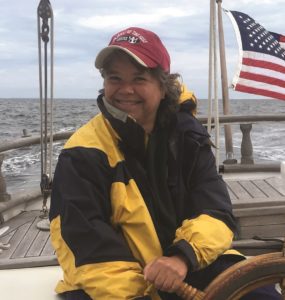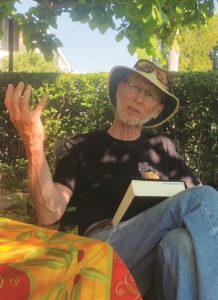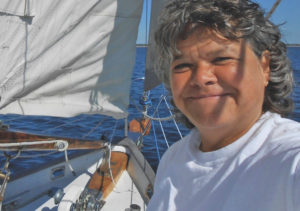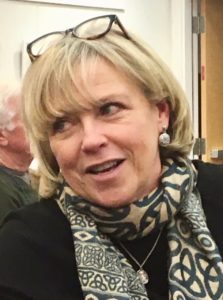Editor’s note: This article has been updated since the deadline for the March 24 print edition.
BARNSTABLE — A new disagreement over how to allocate more than $41 million in American Rescue Plan Act (ARPA) funds is brewing between the two branches of Barnstable County government.
The county commissioners proposed setting aside $10 million for direct payments to the 15 towns and gave the Assembly of Delegates the authority to determine how the amounts for each town would be calculated.
But before any discussion of the commissioners’ proposal took place, the Assembly voted at its March 16 meeting to double that amount. The Assembly majority wants to distribute $20 million directly to towns.
The commissioners voted on Wednesday to reject the Assembly’s ordinance.
Commissioner Ronald Bergstrom suggested abandoning the ordinance process for distribution of the $41.37 million in ARPA funds, which would effectively cut the Assembly out of the decision-making.
“The time has come to proceed according to the advice of the county’s general counsel and special counsel,” Bergstrom said. The attorneys’ opinion was that the ARPA funding is a federal grant. The county commission has sole authority over distribution of grants.
Chair Sheila Lyons agreed with Bergstrom. “We had tried to include the Assembly as a collaborative partner, and it definitely has not been that,” she said.
The third commissioner, Mark Forest, has recused himself from all deliberations about ARPA money because he is chair of the Yarmouth select board. He has been advised that creates a conflict of interest.
Half of the ARPA funds arrived in the county from the federal government last May, but none has yet been spent. The second half, more than $20 million, should arrive by this June.
Randi Potash, the Chatham delegate, presented the motion. She argued that the process proposed by the commissioners, which includes a study of priorities by an advisory council that could take up to seven months, would take too long.
“The towns have projects that are shovel ready,” Potash said. “It makes perfect sense to allow them the lion’s share of the funds.”
All the Assembly members present on March 16 voted in favor of Potash’s motion except Terry Gallagher, the Eastham delegate. In an email to the Independent, Gallagher said he was surprised his was the sole dissenting vote.
“I voted the way I did because I believe Barnstable County government exists for an important reason: to deal with matters on a regional level, where it makes sense for our 15 towns to work together,” said Gallagher. “We worked hard at the county level to define the process that would address ARPA projects as a region. I voted ‘no’ to preserve that process.”
Even if the money were not distributed directly, the towns would still have been able to submit their individual applications for the county funds, Gallagher said.
On Sunday, commission chair Sheila Lyons of Wellfleet said her panel would meet on March 23 to discuss what action to take. “We’ve gone out of our way to work with the Assembly,” Lyons said.
The commission’s attorney had determined that the federal money was categorized as a grant, and as such is under the sole authority of the commission. But the Assembly’s attorney had offered a different opinion, saying the Assembly should also be involved.
After several weeks of debate, the commissioners sent over their proposed ordinance giving the Assembly the $10 million along with the authority to set a formula for dividing the money up for the 15 towns.
“We worked very hard to make them part of the process,” Lyons said. Of the Assembly’s vote to up the towns’ cut to $20 million, Lyons said, “I don’t think it was helpful.”
Commissioner Ron Bergstrom of Chatham, reached by phone, expressed outrage. “By passing this ordinance, they have basically crossed the line,” he said.
The commission doesn’t have to honor the arrangement to make decisions on the ARPA funds via the ordinance process, Bergstrom said: “We could just go back to the legal opinion that we have authority over the funds.”
Assembly speaker Patrick Princi of Barnstable called Bergstrom’s comment “unfortunate.”
“If it’s not going the way he wants it, it’s going back to the lawyers,” Princi said. That won’t benefit the commission or the Assembly, the speaker said, and it just wastes money.
In a phone interview, Assembly member Potash pointed out that her motion could have been for the entire $41.37 million. Nine of the 15 communities favored getting the ARPA money directly, when polled by county administrators.
Following the meeting, Wellfleet delegate Lilli Ann Green said Assembly members have not been satisfied with the county commissioners’ pace. “We have been asking for months what the county’s plan is for the use of the money,” Green said. “We have not to date received what the plans are, and the money is just sitting there.”
The Assembly issued a press release a few hours after its decision to double the amount designated for direct distribution to the towns.
“Towns want to know how much money they will get and when,” said Princi in the press release. “This ordinance will clarify and fast-track the money towns deserve.”
The formula for distributing the money to the towns will be taken up by the Assembly at its next meeting, set for March 30. If it is distributed based on each town’s population, smaller towns — and the four on the Outer Cape are the smallest, according to Census Bureau data posted on the Cape Cod Commission’s website — would get the smallest portions.
One suggestion would establish a uniform base amount for each town, with the rest of the funds allocated according to population.
“We’ll craft a formula that is fair and equitable,” said Princi, “and in the best interests of all the towns, big and small.”
Princi’s town, Barnstable, with nearly 48,000 residents, is by far the largest in the county.






